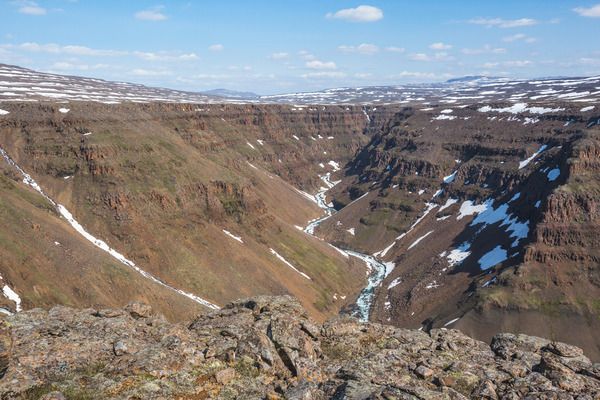
Catastrophic volcanic eruptions that warmed the planet millions of years ago shed new light on how plants regulate climate and sound a warning about rising temperatures.
Researchers, including Professor Ben Mills from the University of Leeds School of Earth and Environment, have developed a new way of calculating the climate impact of huge ancient volcanic eruptions, and say their work is a cautionary tale about “climate tipping points” which could destroy carbon sink forests and see global temperature increases accelerate.
Earth and environmental scientists at Swiss university ETH Zurich led an international team of researchers from the University of Leeds as well as Arizona, CNRS Toulouse, and the Swiss Federal Institute for Forest Snow and Landscape Research (WSL) in a study on how vegetation responds and evolves in response to major climatic shifts and how such shifts affect Earth’s natural carbon-climate regulation system.
The team – made up of climate scientists, geologists and volcanologists - looked at evidence from three significant climatic shifts caused by huge volcanic eruptions, including the Siberian Traps event that caused the Permian-Triassic mass extinction about 252 million years ago – the largest extinction event ever seen on Earth.
Temperature-driven collapse of the world’s tropical forests has happened before and can happen again.
Professor of Earth System Evolution, Ben Mills, said: "The events in our study took place millions of years ago and played out over hundreds of thousands of years. But they tell a cautionary tale for the present day. Temperature-driven collapse of the world’s tropical forests has happened before and can happen again.
“Our work confirms that the Earth can respond to climate change in ways that are very dangerous for animal life. Ancient periods of climate change lasted well beyond the cessation of carbon emissions, and it is possible that the climate can permanently transition to a warmer state.”
By developing a new computer model with which to consider these events, the researchers found the time it takes for the climate to reach a new state of equilibrium depended on how fast vegetation adapted to increasing temperatures. Some species adapted by evolving and others by migrating geographically to cooler regions.
However, some geological events were so catastrophic that plant species simply did not have enough time to migrate or adapt to the sustained increase in temperature. In these cases, the climate took even longer to recover, and the consequences left a geochemical mark on climate evolution for thousands, possibly millions, of years.
Loïc Pellissier, Professor of Ecosystems and Landscape Evolution at ETH Zurich and WSL, said: “Today, we find ourselves in a major global bioclimatic crisis. Our study demonstrates the role of vegetation in recovery from abrupt climatic changes. We are currently releasing greenhouse gases at a faster rate than any previous volcanic event. We are also the primary cause of global deforestation, which strongly reduces the ability of natural ecosystems to regulate the climate.
This study, in my perspective, serves as ‘wake-up call’ for the global community.
“This study, in my perspective, serves as ‘wake-up call’ for the global community.”
The study found that a disruption of vegetation increased the duration and severity of climate warming in the geologic past. In some cases, it may have taken millions of years to reach a new stable climatic equilibrium because the destruction of vegetation led to a reduced capacity to regulate Earth’s carbon cycle.
Lead author Julian Rogger added: “The recovery of vegetation from the Siberian Traps event took several millions of years and during this time Earth’s carbon-climate regulation system would have been weak and inefficient resulting in long-term climate warming.”
Further information
For more information, please contact University of Leeds press office via email on pressoffice@leeds.ac.uk
‘Biogeographic climate sensitivity controls Earth system response to large igneous province carbon degassing’ is published in Science 8 August 2024.